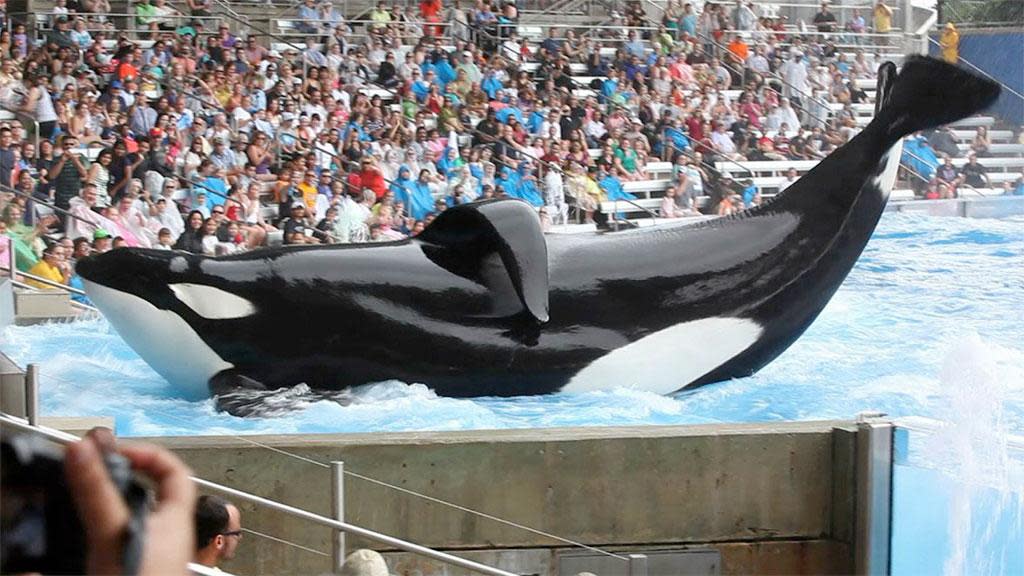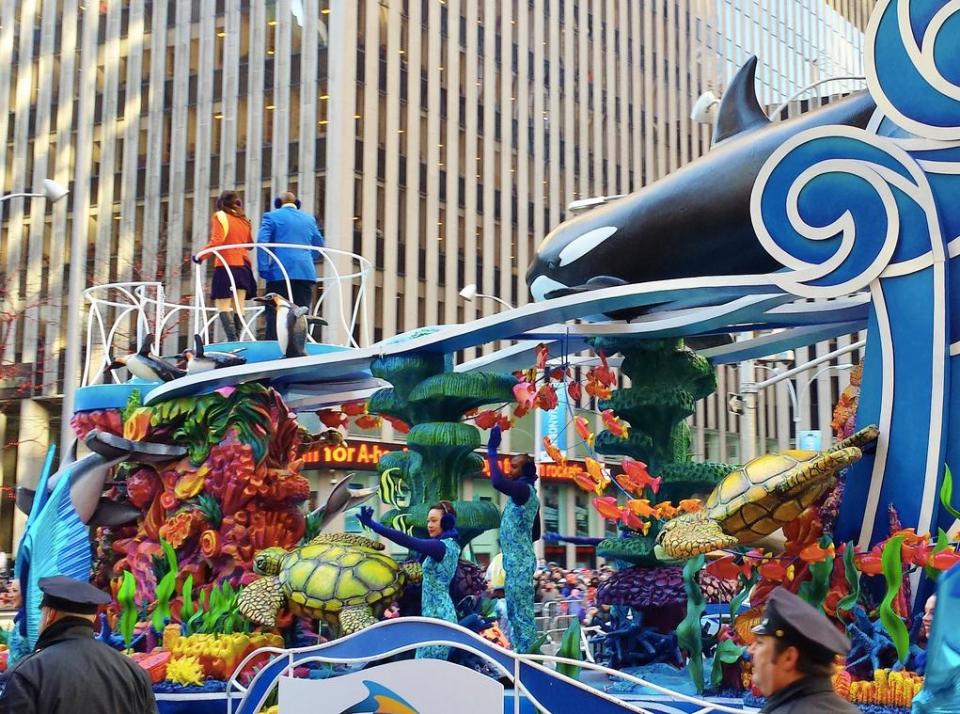The 'Blackfish' Director Decries SeaWorld's Thanksgiving Day Parade Float

Just over a year after the documentary Blackfish began a backlash that caused a sharp decline in attendance and profit for SeaWorld, the aquatic theme park will try to earn some good PR this week by sponsoring a float in the Macy’s Thanksgiving Day Parade.
Gabriela Cowperthwaite, the director of the 2013 smash-hit documentary — which chronicled the company’s alleged decades of mistreatment of its orca whales and human trainers — thinks Macy’s is making a mistake by allowing SeaWorld to continue to participate in its flagship event.
“It’s just so strange to me,” Cowperthwaite told Yahoo Movies on Tuesday. “Virgin Airlines, Southwest Airlines, Panama Jack, [and] countless other companies and people have disassociated from SeaWorld, and I think we’re living in a time of some serious ethical housekeeping. It would make perfect sense for Macy’s to join this movement. The idea where a company doesn’t care what it’s partners stand for [is] is a business model that is going out style.”
Last year, SeaWorld’s “A Sea of Surprises” float was targeted by protestors during the parade, and People for the Ethical Treatment of Animals (PETA) is planning similar tactics against this year’s float, dubbed “Wave of Conservation.” The animal-rights organization will send several members — naked save for black-and-white body-paint — to sit in crowded bathtubs outside Macy’s midtown Manhattan department store, in order to protest what the group sees as cramped and isolated conditions within the parks.
This year’s float will feature, among other things, several orcas. “I can’t even imagine a more brazen and tactless thing,” Cowperthwaite said.

Float displayed on the Macy’s Thanksgiving Day Parade website
"The parade has never taken on, promoted or otherwise engaged in social commentary, political debate, or other forms of advocacy, no matter how worthy,” Macy’s spokesman Orlando Veras said in a statement last week.
Seaworld has not responded to Yahoo Movies’ request for comment, though a spokesperson told Reuters last week that “SeaWorld’s animals are well cared for and their health and well-being is a responsibility we take extremely seriously. We are proud of our world-class standards of care.”
The anti-SeaWorld movement hit new heights over the last year, following the first airing of Blackfish on CNN. Cowperthwaite says that upwards of 60 million people have seen the film — many through repeated CNN showings and digital on-demand services — and the resulting outrage has led to a startling decline for the company’s financials.
On November 12, the company reported a 28 percent drop in profit and a 5.2 percent slip in attendance in the three months that ended on September 30. And in May, the company reported a 13 percent drop in attendance for the first quarter of the year.
“When [people] think about the value of the day at SeaWorld, I think most people won’t really miss it,” Cowperthwaite said. “It shows that people are willing to shift 180 degrees on something … people were willing to say whoops and change the way they do things, for ethical reasons.”
The filmmaker says she’s heard from a litany of current and former SeaWorld employees since the film was released last year, many of whom have backed her documentary, and given her further evidence against the company. But not everyone has been as supportive, and Cowperthwaite says she’s received plenty of harassment online over her film’s allegations.
"They’d get my personal email somehow, and start calling me the b-word and telling me that my time on this planet is limited,” she says. “I can’t trace those emails back — they’re these dummy email accounts. They’re scare tactics.”
Cowperthwaite, though, has spent enough time in schools talking about the film and its charges against SeaWorld that she believes the company is fighting a losing battle. The company could survive, she suggests, by switching to a rehabilitation-and-release model, opening up a sea sanctuary for its whales and charging admission to view them in their natural habitat. Instead, the company is pushing for international expansion, in countries such as China and Russia, which have less rigorous ethical standards.
“The problem with their business model,” she said, “is how can you truly take care of an animal — how can you care about he welfare of an animal and the people that work with that animal — when the show always has to go on?”
